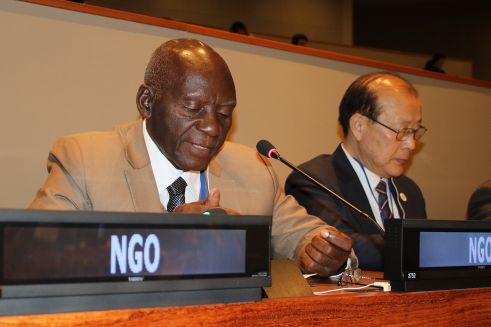
Much-needed progress towards a UN convention on the rights of older people could be delayed as a result of the decision to curtail this year’s annual UN meeting of the Open-ended Working Group on Ageing.
Steps need to be put in place to make sure that the rights of older people are not overlooked in the UN agenda in New York as a result of the decision to shorten the meeting as part of the UN’s efforts to stem the spread of the coronavirus pandemic.
“This is a responsible way to respond to the global coronavirus crisis and I understand why it would not be right to go ahead at this time,” said Justin Derbyshire, Chief Executive Officer at HelpAge International.
“But we cannot allow this to mean that older people’s rights will be absent from the UN agenda in New York for up to two years and we would like to see the meeting rescheduled as soon as it is safe to do so. Older people cannot wait.”
The meeting of the Open-ended Working Group on Ageing was due to include a four-day open discussion, with full engagement from civil society. It represents the only significant opportunity for older people, and the organisations who campaign for their rights, to discuss the need for a convention with governments at the UN.
“Older people’s rights are mostly invisible in the international human rights system and seldom come under the spotlight at the UN in New York outside this annual meeting. It is wrong for discussions and decisions to take place without the full participation of older people and the curtailment of this meeting must not be allowed to derail progress towards a UN convention,” said Justin Derbyshire.
The 11th meeting of the Open-ended Working Group has now been reduced to a three-hour session. The proposed agenda is expected to be limited to six statements and the adoption of pre-negotiated intergovernmental recommendations.
One hundred and sixty NGOs working on older people’s issues are registered to participate in Open-ended Working Group sessions. The 38 who newly applied to participate will now have to wait until the next session to reapply. One contribution from civil society will be allowed but there will be no chance for older people to contribute to the discussion, denying a voice to people who are otherwise not seen or heard in the UN human rights system.
Find out more about a UN convention on the rights of older people here.
